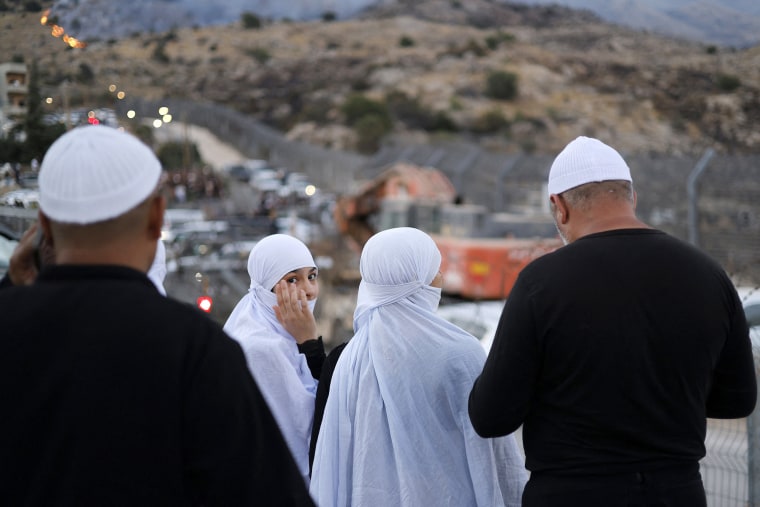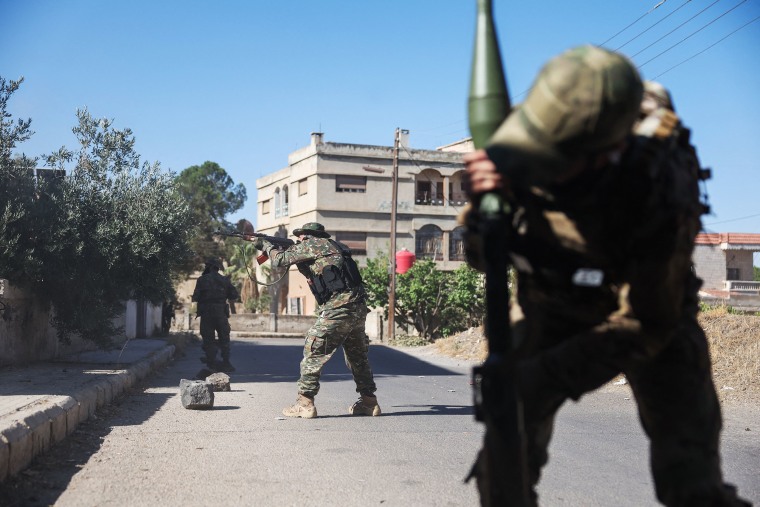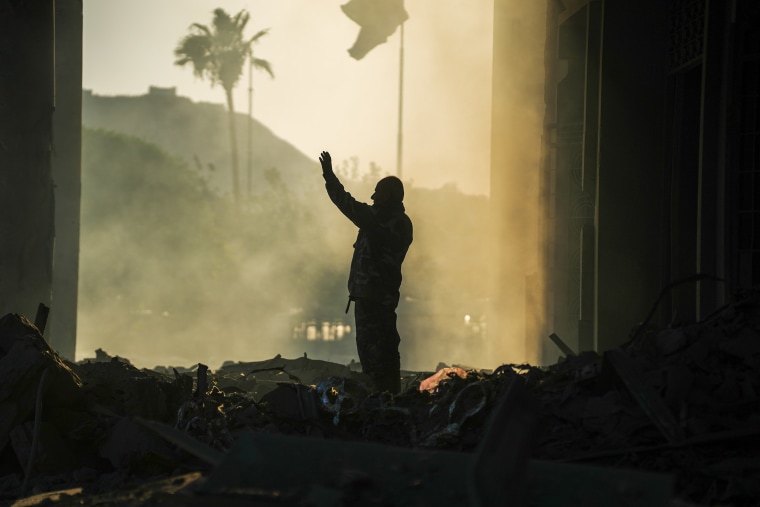Syria's leader accused Israel on Thursday of sowing discord with a wave of intense airstrikes following deadly sectarian clashes that threatened the country's fragile unity and illustrated its neighbor's capacity to attack across the region.
In a televised speech, interim President Ahmed al-Sharaa promised to protect the rights and freedom of Syria's Druze community — and avoid an “open war” with Israel. He said Syria "will never be a place for division or fragmentation."
He spoke after the Syrian government and leaders in the Druze community announced a renewed ceasefire Wednesday after days of clashes in the southern city of Sweida threatened the relative stability achieved in the country since the Assad regime was toppled in December.
A previous ceasefire to end the violence in Sweida quickly crumbled, so it was unclear whether the latest truce would hold.
Israel launched rare strikes in Damascus and elsewhere Wednesday in a campaign it said was aimed at defending the Druze, who also have a strong presence in Israel and are considered a valued minority — as well as forcing Islamic militants away from its border.
Here's what we know.
Who are the Druze?
The Druze community is a tight-knit sect dating to the 11th century that draws from Christian, Muslim and Jewish beliefs, as well as elements of Hinduism and classical Greek philosophy, according to the Pew Research Center.
Its population consists of more than 1 million people living primarily in Syria and Lebanon, as well as in Jordan and in Israel, where there are around 150,000 Druze residents, according to figures from the country's Central Bureau of Statistics.

In Syria, the Druze are one of the country's myriad religious and ethnic minorities, many of which are wary of promises from the country's new leadership of a more unified nation — and the recent violence has done little to assuage those suspicions.
“We’ve lived through very tough days, and I was terrified for my wife and four children,” Saleh Muthanna, 43, a Druze resident of Sweida, told NBC News on Wednesday about the recent violence.
“The kids were constantly screaming, terrified of dying,” said Muthanna, a taxi driver.
"The state is supposed to build a bridge of trust with its people, not through violence, killing and intimidation," he said, speaking before Sharaa’s comments.
How did the recent violence begin?
The Syrian Observatory for Human Rights, a U.K.-based war monitor, said the clashed began after "local tribesmen," who The Associated Press reported were Bedouin, in Sweida province set up a checkpoint where a Druze man was attacked and robbed. The incident appeared to set off tit-for-tat attacks.

Government security forces were dispatched to the area to restore order, but by Wednesday more than 300 people had been killed, including dozens who were "extrajudicially executed," the Syrian observatory said. It accused security forces of having committed "blatant violations and massacres" in the clashes.
NBC News was not able to independently confirm the situation on the ground.
Sharaa vowed Thursday to hold those responsible for violations against "our Druze people" to account, according to Reuters, but it is not clear how or when exactly that process might unfold.
Why is Israel involved?
Israel said it launched its strikes in Damascus and beyond to protect the Druze community and push Islamic militants from its border. But Sharaa accused the country of seeking to sow divisions and foster instability within Syria after military campaigns against Iran and the Hezbollah militant group in Lebanon.
In an update Thursday, Prime Minister Benjamin Netanyahu said Israel had "established a clear policy: the demilitarization of the area south of Damascus" and "protecting the brothers of our brothers — the Druze," adding that "both of these principles were violated by the regime in Damascus."
Netanyahu suggested the latest ceasefire was "achieved through strength. Not through appeals, not through begging — through strength." He added that Israel would "continue to act as necessary."

Sanam Vakil, director of the Middle East and North Africa program at the London-based Chatham House think tank, said Israel risked further isolation in the region and on the international stage as continues to face mounting condemnation over its deadly war in Gaza.
“Everyone knows that Israel is the ... dominant military power of the Middle East, and it didn’t need to damage its legitimacy and credibility in Syria,” she said.
Fears of further violence
Secretary of State Marco Rubio said Wednesday that Washington was “very worried" about the violence, calling it a "direct threat to efforts to help build a peaceful and stable Syria." He said the Trump administration was in "constant talks" with Syria and Israel.
A defiant Sharaa said, according to a transcript from Reuters: “We are not among those who fear war. But we put the interests of the Syrians before chaos and destruction.” He added that local factions and sheikhs had been assigned the responsibility of maintaining security in Sweida.
Sharaa has worked to shake off his jihadist past and build global confidence in his leadership. But this appears to be the most serious threat yet to the fragile control he holds over the country following dictator Bashar al-Assad was ousted.
And Vakil said future flare-ups of violence felt inevitable.
“This is not over, unfortunately,” she said, adding that it would take a more “sustainable de-escalatory agreement” and robust efforts toward reconciliation and accountability to temper the possibility of further violence.
